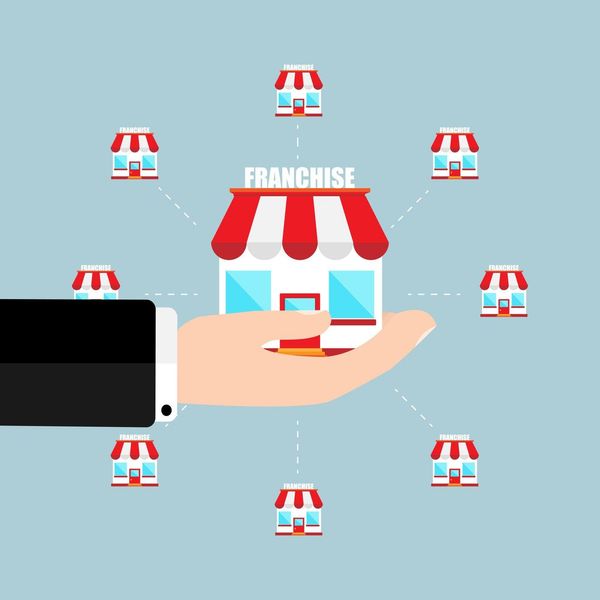
5 Steps to a Strong Franchisor-Franchisee Relationship
When investing in a franchise, you may think it’s the brand recognition that will be most beneficial to you, or the location of your business that will determine how well you do. But there’s another aspect that could be equally crucial to your success—the franchisor-franchisee relationship. Though not so tangible, a strong relationship could actually be the key to making it big in the franchise world.
How do you build and make the most of this franchisor-franchisee relationship? We asked individuals in the industry for their advice, and here’s what they had to say.
Steps to a strong franchisor-franchisee relationship
1. Find a company culture that meshes with your own
In order to build a strong relationship with corporate in the first place, it’s important to find a franchise that has philosophies and goals that you can believe in.
When Craig Holman lost his job in the steelmaking industry that he had been a part of for 35 years, he was forced to search for something new. After visiting AdvantaClean’s Discovery Day, he was most impressed with the company culture, which values people and giving back to the larger community through the AdvantaClean Foundation, which assists victims of floods and other natural disasters. These values gave Holman the courage to start down a new path.
“I have always liked working with my hands; therefore, the tangible work of the AdvantaClean business was a natural fit for me,” he says. “But, more importantly, I wanted to work with a company that stood for integrity and quality, both in their work and in their character.”
2. Find a franchisor that is capable of and ready to support its franchisees
Before you enter into a franchise agreement, make sure that the franchisor is as serious about its commitment to helping you succeed as you are about enhancing the franchise system.
“A strong relationship between a franchisor and franchisees is vital to the health and success of a system,” says Christine Specht, President and COO of Cousins Subs. “This relationship is a partnership based on trust and a common respect for one another. Franchisees count on the franchisor to build a proven business model and continue evolving and growing the brand, while the franchisor relies on its franchise owners to successfully market the brand and expand its network.”
3. Enter the franchise agreement with team spirit
A franchise system is made up of many individuals, but can only be as strong as the people who are involved—and they have to work well together. Demonstrate clearly that you’re ready to be a team member, and you’ll notice that corporate will value you as such.
“Bury the ego, pick up the oar and start rowing with everyone else,” advises Holman. “None of us are as important or indispensable as we may think we are based on past successes. We are all human, with human faults. Do everything you can to learn from each member of the franchisor’s team and use the systems that are put specifically in place to support you.”
Timothy Casey, CEO of TCBY, agrees about the importance of teamwork. “Keep your objectives and motivations pure and consistent,” he says. “The relationship and the collaborative efforts should always be pursued for the benefit of the organization and the entire population of franchisees. When both the franchisor and franchisees remain true to ‘the purpose’, the relationship will thrive and the outcomes will be powerful and dynamic.”
Thanks to effective teamwork and strong relationships, TCBY has grown and evolved. One of the most recent examples illustrating the successful collaboration between corporate and the franchisees occurred during a company redesign effort. Franchisees worked hands-on with corporate to create a new, modern, cross-generational store design, and one of the franchisees helped to test a self-serve prototype along with corporate before launching a major rollout.
More articles from AllBusiness.com:
- 10 Signs of a Great Franchise Opportunity
- 5 Questions to Ask Before Diving Into Franchise Ownership
- How Much Does a Franchise Cost?
- Your Franchise Location: What Your Franchisor Will And Won’t Do for You
- How to Get the Most From a Franchise Training Program
4. Be active in the franchise
Dan Leonard signed on with UNITS Portable Storage in July 2008 and has been actively involved serving on the franchise’s Operations Safety Committee and the Franchise Advisory Council. Through his involvement in these committees, he has been able to voice his opinions and offer feedback to corporate on ways that the franchise system might be improved.
“I think it is important to be an active participant in the corporate structure, so take advantage of every opportunity that is available,” Leonard says. “From my point of view, we have had a constructive working relationship. It’s that idea of a partnership between the franchisee and franchisor that makes the whole system work.”
5. A great franchisor-franchisee relationship means using the franchisor’s expertise and resources
A strong relationship means that you have greater access to the knowledge that the franchisor possesses. Don’t hesitate to tap into the resources and knowledge at hand. Wendy McHaney opened her Senior Helpers franchise in January 2010 and has bi-weekly phone conversations with someone from corporate to discuss ways that she can grow her franchise. Thanks to advice provided by corporate, McHaney has been able to increase her lead to assessment ratio from 10 percent to roughly 60 percent.
Likewise, Holman of AdvantaClean has benefitted from the tools that corporate has put into place. including weekly webinars and a networking tool to connect franchisees with one another. “[The franchisor’s] accessibility and approachability have been invaluable to me as I developed my own sense of the details of the business and got up and running,” he says.
“It’s great to be able to pick up the phone and ‘call the expert’ or access them via our communication systems whenever there’s a situation I’m not sure how to handle. Someone in the organization has seen it and done it before, that is a guarantee. I have all the tools I need to contact that person and all the support I need for them to coach me through it.”
RELATED: Buying a Franchise vs. an Independent Business: What Are the Pros and Cons?
About the Author
Sara Wilson is a freelance writer who specializes in issues related to small businesses. Contact her at wilson.sara@gmail.com.



